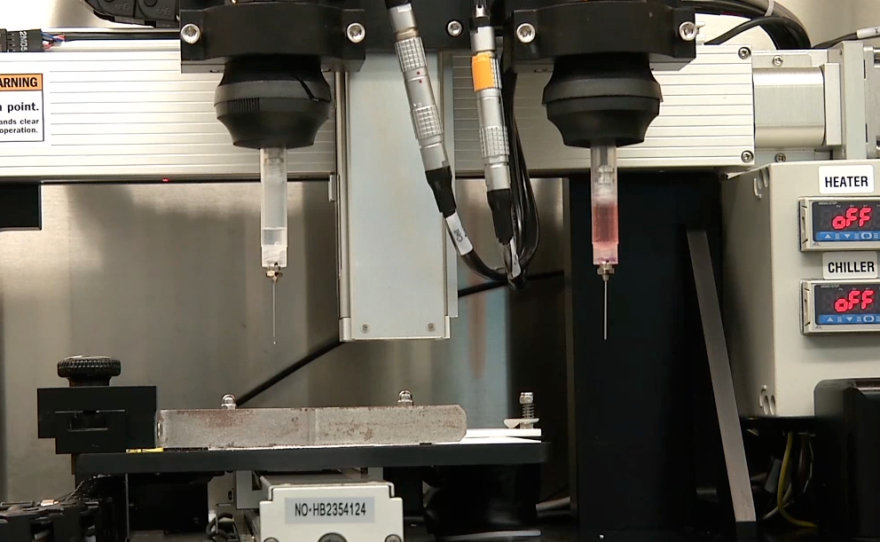A local company hopes to improve beauty product testing by 3D-printing human skin. San Diego-based Organovo on Tuesday announced a deal to develop bioprinted skin tissue for cosmetics giant L'Oreal.
Organovo CEO Keith Murphy said his company can build many kinds of tissue by using human cells as the ink in a 3D-printer.
"One of them of course is skin," Murphy said. "Naturally, a beauty company like L'Oreal has an interest in using three-dimensional skin to test potential cosmetic agents for their products."
Beauty companies have been moving away from testing products on animals, and current skin substitutes developed by companies like L'Oreal have limitations.
The new product-testing medium proposed by Organovo would consist of real human cells assembled by machine into a three-dimensional tissue. Then, L'Oreal could test anti-wrinkle cream or tanning lotion on the tissue to see if it actual gets smoother or changes hue.
Murphy said by layering different types of skin tissue, Organovo can better mimic the complexity of actual human skin.
"The opportunity with 3D bio-printing is to create something that can closely represent, for example, the full thickness of skin, as opposed to just the top layer," Murphy said.
Organovo's partnership with L'Oreal represents the company's first foray into cosmetics. It's also been working on 3D-printed liver and kidney cells for drug testing.






